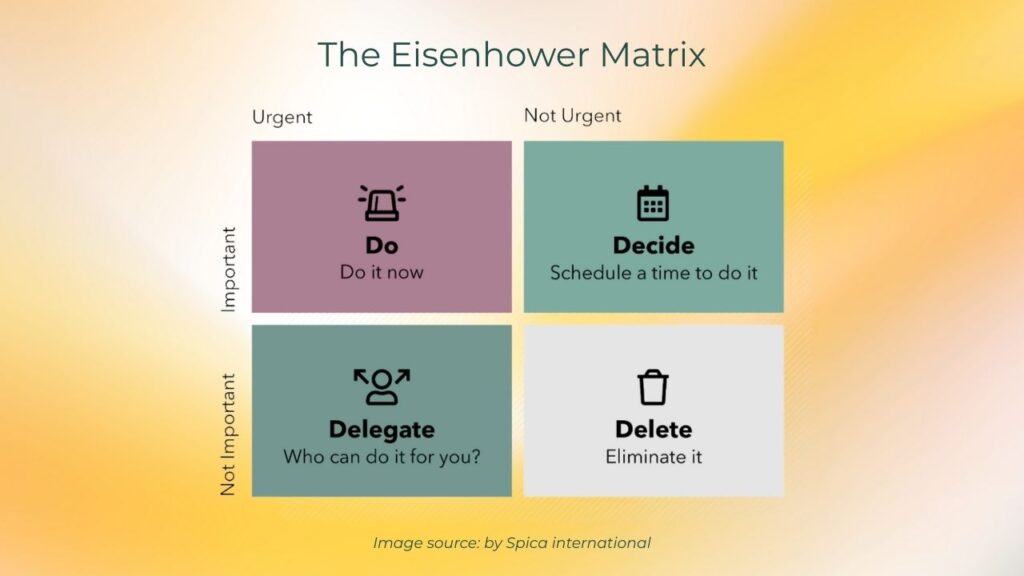Podcast #56

Why Self-Management Is the Toughest, and Most Important Leadership Skill
“The toughest person you’ll ever have to manage is yourself.”
This powerful truth is one that many aspiring leaders overlook. We spend so much time learning how to motivate teams, impress bosses, and deliver results, but rarely do we stop to ask: Am I able to truly manage myself first?
In today’s fast-changing corporate world, where pressure is high and emotions often run strong, mastering self-management is not just an option; it’s the foundation of effective leadership.
External Self-Management: Productivity with Purpose
One of the most practical tools for self-management is the Eisenhower Matrix. By separating tasks into four categories, urgent & important, not urgent but important, urgent but not important, and not urgent & not important, you can prioritize effectively.

The Eisenhower Matrix, a time management and prioritization framework, is attributed to a philosophy expressed by U.S. President Dwight D. Eisenhower. However, Stephen Covey popularized the four-quadrant matrix format used today in his best-selling book The 7 Habits of Highly Effective People.
Transforming you from being “busy” to being impactful
It helps you:
- Focus on high-value work
- Delegate or eliminate distractions
- Protect your energy from burnout
As a leader, explaining this system is amazing to ensure you focus on what matters in managing your own tasks – AND it also brings clarity to your team. When your people see why certain tasks take priority, they gain trust in your judgment and align more easily.
Internal Self-Management: The Inner Team
But true self-management goes deeper than productivity hacks. It’s about your inner team, the collection of voices, perspectives, and past experiences that live inside you.
Have you ever felt torn between two instincts at once? Or reacted emotionally at work in a way you later regretted? That’s your inner team at play. Here’s the key: if you’re still easily triggered, you’re not fully the CEO of your inner team.
By becoming aware of these inner voices, identifying which part of you is being triggered, and aligning them, you gain emotional clarity and control.

Why It Matters for Leadership
- Leaders who master self-management can respond instead of react.
- They build emotional stability that makes them unshakable, also ensuring stability in good decision making – even under pressure.
- They gain the ability to see through others’ emotional outbursts—recognizing when a toxic boss or peer is acting from insecurity, rather than professionalism. And can then allocate their resources and strategize accordingly.
This maturity not only protects your career but also earns trust, authority, and respect.
Practical Reflection Prompts
- Did something trigger me today? What was it?
- Have I felt this before? When was the first time?
- Which part of my “inner team” is speaking right now?
Conclusion
Leadership begins within. If you want to inspire others, you must first learn to lead yourself, with clarity, emotional intelligence, and intentional action.Remember: “How you lead yourself is how you lead others.”
Mastering self-management is not just preparation for leadership; it is leadership.
Accelerate Your Career Today

Daily Workbook
Establish the routine of working on your career daily. With our new workbook, you will start to see and keep track of your own advancements.

Career Coaching
For professionals that want to get ahead in the fastest way, book a package of 1-on-1 coaching sessions for individual guidance and support.

Newsletter
Your career is a long-term process. That makes it incremental to stay on track effortlessly. Subscribe to our newsletter and stay focused on your dream career.
